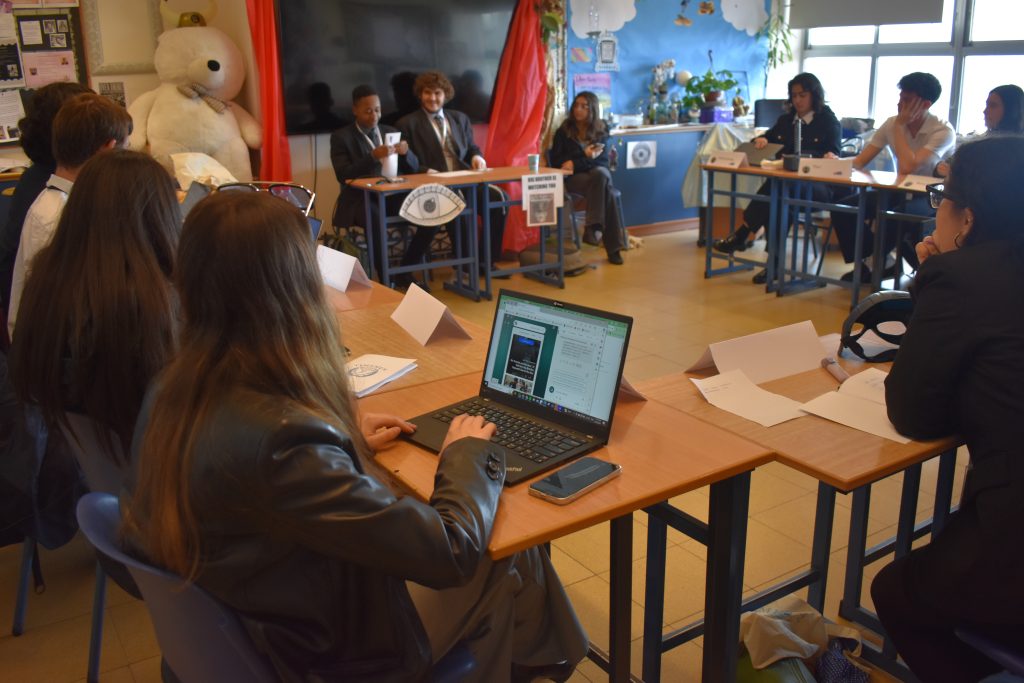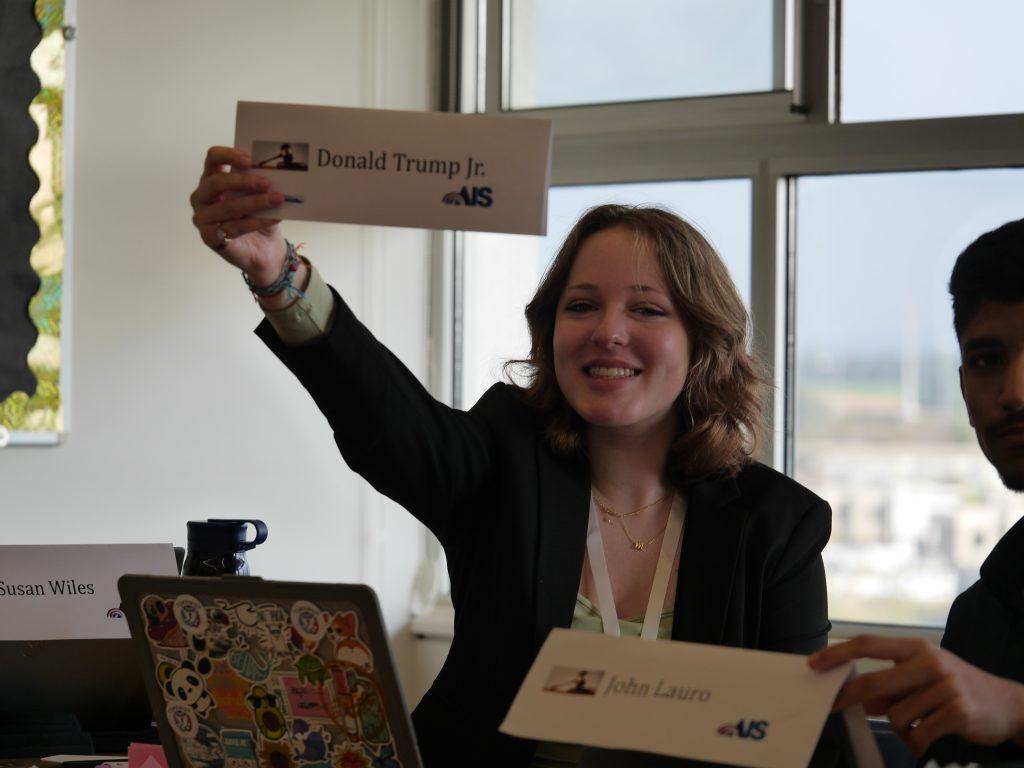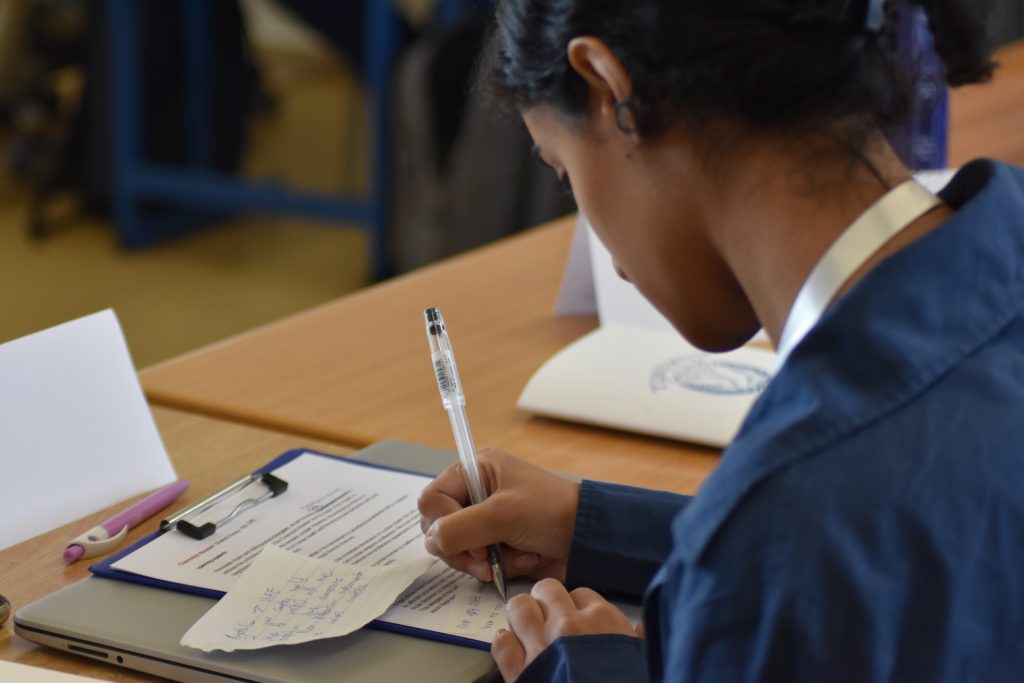Here is a list of all the committees that will be represented in TIMEMUN.
Beginner committees (Delegates for whom TIMEMUN is their first – third MUN conference. Capped at 35 delegates per committee)
World Economic Forum (WEF)
Chocolate Production: The WEF will be taking on the topics of labor abuse and environmental harm that goes into creating and distributing the chocolates we love to consume.
Modern Slavery: While slavery has been officially banned in all countries for over 40 years, an estimated 50 million people remain trapped in slavery throughout the world. The WEF will try to offer solutions to finally eradicate slavery.
African Union (AU)
Safety in the Horn of Africa: After years of success fighting piracy off the coast of Somalia, the problem has come roaring back, compounded by attacks from Houthis in Yemen, and a political-territorial conflict with neighboring Ethiopia. The state of global shipping, with a significant economic impact, rests on the ability to ensure a safe pathway through the Horn of Africa.
Wildlife Trafficking: Illegal trafficking of wild animals is a multibillion dollar industry with even greater consequences for biodiversity. Over 4,000 species of plans and animals are trafficked annually, risking the future of endangered species, threatening food chains, and risking the spread of diseases, while also fueling conflicts and providing resources to criminal organizations. The African Union will address this complex issue.
Intermediate committees (Delegates who have been to at least two conferences already. Capped at 30 delegates.)
European Union (EU)
Female Political Leadership: With more than half the world’s countries never having had a female head of state, and less than 15% of countries led by a woman, the European Union will look to lead the way in advancing a framework for increased representation of female political leadership.
Transnational Drug Trade: The drug trade is a growing part of the global economy, intersecting with corruption, criminal networks, violence and other threats to global safety and stability. The EU committee will look at this salient issue, in a continent where 30% of those polled said they could get cocaine within 24 hours, and 60% said they could get cannabis.
Permanent Forum on Indigenous Issues (PFII)
Indigenous Languages: With an average of two languages a month going extent, and 40% of the world’s languages at risk, the very words used by indigenous people are disappearing. The PFII will suggest solutions to preserve and revitalize indigenous languages.
States’ vs Tribal rights: Who investigates when a crime happens on tribal land? Who sets the educational or environmental standards? Can illegal drugs be used in religious ceremonies? The PFII will take on the broad challenge of delineating where national government rights end and tribal sovereignty begins.
North Atlantic Treaty Organization (NATO)
Tensions with North Korea: While global attention has been largely focused on Russia and Ukraine over the last few years, the risk of a major conflict erupting over North Korea cannot be ignored. NATO will turn its attention to the topic of North Korea, and proactively creating a strategy for addressing this high-risk scenario.
Maritime Security: After numerous incidents of marine sabotage, terrorism, hijackings and more, NATO will focus on greater coordination and collaboration for securing the sea routes of its member states.
Advanced (Delegates who want a more dynamic, challenging committee. Capped at 20 delegates.
BRICS Committee
BRICS-wide cryptocurrency: BRICS members and observer states have come together to create a new global currency to challenge the dominance of the $, but this time it will be a cryptocurrency. The committee must debate the specifics as they try to create the most powerful digital currency in the world.
Climate Change: What would a climate change policy led by developing economies look like? That’s the question for the BRICS members as they put forward their own proposal for advancing green energy and addressing climate change while acknowledging the needs of the world’s largest populations and fastest growing economies.
Interplanetary Forum (IPF)
The Interplanetary Forum, meeting in 2060, will be debating the pressing issues of Cyborg rights, and protecting endangered alien species and non-space faring species.
How To Train Your Dragon
In this committee, characters from the book/show will be discussing and debating the legal rights of dragons throughout the archipelago and related issues.
CRISIS | Historical US Presidential Forum
Through a rip in the space-time continuum, the most iconic presidents throughout US history find themselves in one room, debating two of the most challenging topics the US has faced throughout history: how to end World War II, and how to Make America Great Again.
CRISIS | Prison Break
In the joint cabinet crisis, students will be split between the prisoners and the police, as each room tries to outwit the other. Will there be honor among thieves? And which cops are taking bribes to help the prisoners? The answers are up to you (and the Backroom) to decide!


